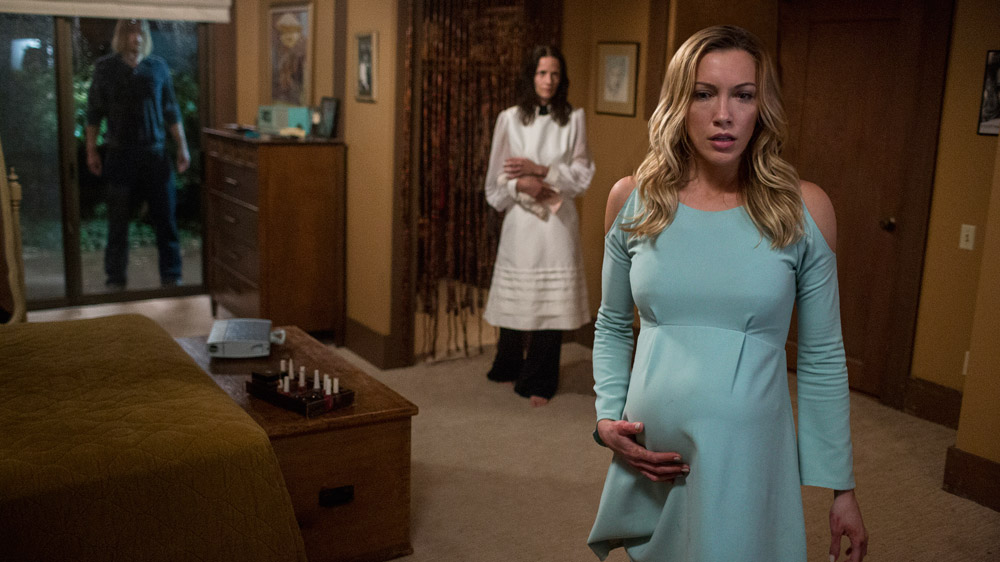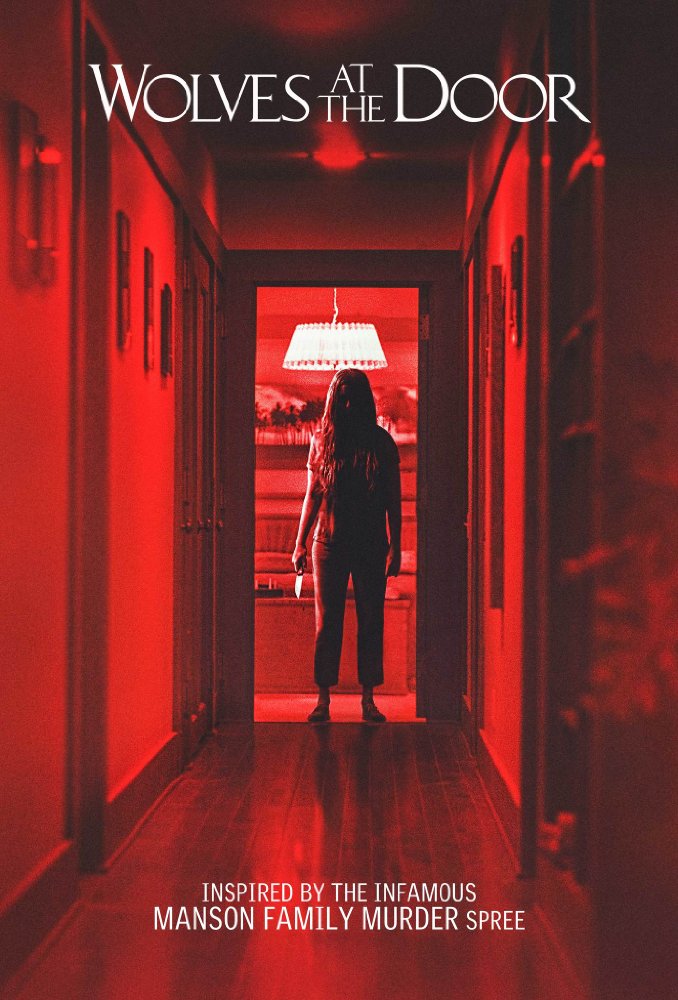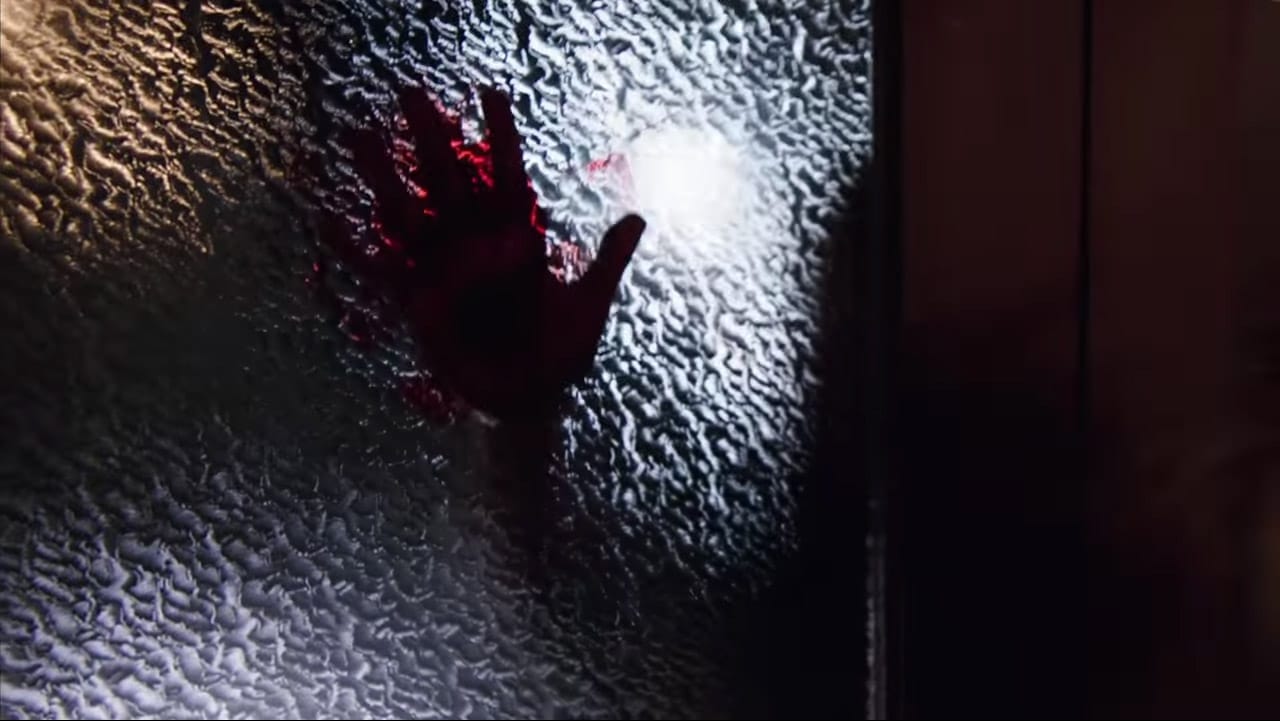
It all starts fairly no-nonsense, looking for all the world like every other home invasion movie which we may have seen over the past decade or so: some white suburbanites have someone shadowy and apparently very strong break into their home, where they daub words like ‘PIG’ in blood on their doors. The cops arrive, and fill in the gaps for us: it seems that some young hippies, or radicals, or other 60s-style ne’er-do-wells have been doing similar things all over LA – though one cop acknowledges – rather significantly – that this most recent attack seems to show that it’s ramping up a bit. We then cut to a slightly soporific gathering of twentysomethings – where one of their party is about to go away, and so is being given gifts and so on before they head back home together. You know what this means, folks: it’s someone’s Last Night. Alongside a police officer’s Last Shift, this is dangerous territory. I should also say that one of the group is a pregnant actress called Sharon…
True enough, soon the gang of young nasties are on the approach to the soporifics’ house, where they spend an awful lot of time channeling the slasher antiheroes who had yet to appear in cinemas at that stage, by appearing silently in doorways, seemingly defying logic and physics to be everywhere at once, and also moving with the silent certainty of a Jason Voorhees or a Michael Myers. As for the rest of the film, I’d normally be wary of spoilers, but in this case, there’s hardly the need. The nasties get into the house; bad things ensue, but nothing too horrifically recognisable from the Manson case files, which makes the whole thing feel simultaneously a tad disparaging and rather pointless.

Wolves at the Door plumps for the most simplistic approach possible throughout. Plot markers are thrust home in an unnecessary and rather uncomfortable way, I must say, and any endeavours to make us like characters who are so transparently about to be carved up always fall flat; more time is taken on needless props and jargon words to convince us that yes, this is in fact the late 60s. All of these irritations are magnified by the fact that you already know – more or less – what’s going to happen, especially when you see that some new perspective is not going to be forthcoming. Even at a running time of just 70 minutes, the weight of expectation – together with the dull pains of familiarity – makes the film feel incredibly slow.
In its race to be a HORROR FILM, too, Wolves at the Door also mashes loads of elements from other, quite separate genres together in a way which makes me feel that director John R. Leonetti may know a little about the horror genre (he’s worked in a variety of settings and genres) but doesn’t have high regard for its fans. As already mentioned, some of the scenes look like they’re Straight Outta Halloween, but in other places, the home invaders resemble Japanese ghosts (long hair in face, supernatural silence, moving as if on coasters) and everywhere, there are problems with that whole jump scare thing which only works, if we can call it working, by frying your nerves. Imaginative, this ain’t – and when images and news reel footage finally appear to try once and for all to link this lacklustre film to that horrifying and significant sequence of real events, it feels like the only genuine surprise we get: what a pity it also feels like an insult.
Wolves at the Door is available on DVD and digital download now.
